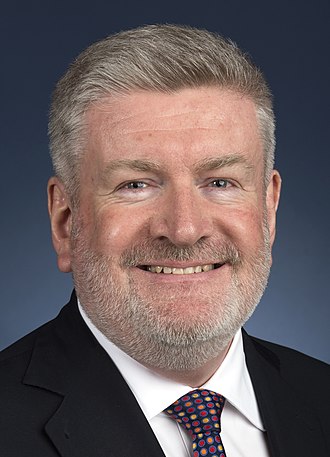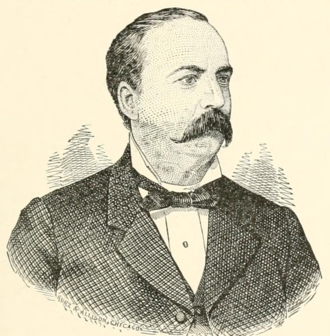Fifield Last Name Origin, History, and Meaning
Where did the surname Fifield come from? What does the surname Fifield mean? Discover the history and meaning of the last name Fifield and family migration on YourRoots Map.
Surname Fifield Origin: What does the last name Fifield mean?
The surname Fifield has its origins in England, with records dating back to the early 16th century. The name is closely associated with England from the 16th to the 18th centuries, but has also spread globally over the centuries. YourRoots data shows that the Fifield surname is prominent in the United Kingdom and the United States, with records also found in countries across Europe and other regions.
Unfortunately, specific details about the meaning and origin of the Fifield surname are not available in the preparatory dataset provided by YourRoots. However, the surname's presence in various countries worldwide indicates a significant global spread and a rich history associated with the name. The Fifield surname continues to be recognized in different regions, reflecting its enduring legacy and widespread presence in diverse cultures.
Fifield Last Name History: Where did the last name Fifield come from?
Origin of Fifield Surname: Where does the last name Fifield originate from?
According to YourRoots data, the surname Fifield first appeared in records from England around the early 16th century. Please note that this reflects only YourRoots data for the exact Fifield spelling and does not include other record sources or surname variations.
History of the Last Name Fifield: What does the Fifield surname history look like in the early days?
The Fifield surname remained closely associated with England from the 16th to the 18th centuries. YourRoots data also shows Fifield family records in countries like the United States, indicating global spread over the centuries.
Global Spread: Where can we find the Fifield surname today?
By the 20th century, the volume of records with the Fifield surname grew significantly in the United States. The Fifield surname remains prominent in the United Kingdom and the United States. It appears in many countries, including those in Europe and other regions.
Explore Fifield last name heritage and Fifield surname origin based on YourRoots Map data
 VIEW THE ORIGIN OF SURNAME FIFIELD
VIEW THE ORIGIN OF SURNAME FIFIELDFamous People With Fifield Surame?

Mitch Fifield
Mitchell Peter Fifield (born Jan 16, 1967) is an Australian politician and diplomat. He served as the Permanent Representative of Australia to the United Nations and was a Senator for Victoria from 2004 to 2019. Fifield held various ministerial positions in the Abbott, Turnbull, and Morrison governments, including Minister for Communications and Minister for the Arts. He is known for his advocacy of voluntary student unionism and controversial views on federal spending. In 2019, he became Australia's Permanent Representative to the UN. Fifield was involved in a notable debate with Senator Katy Gallagher, sparking a viral "mansplaining" controversy in Australian politics.

Christopher Fifield
Christopher Fifield (September 4, 1945 – January 19, 2025) was an English conductor and classical music historian known for his work in exploring neglected 19th-century Romantic repertoire. He served as the music director of the Lambeth Orchestra and was recognized for his insightful concert intermission talks on platforms like The Proms and BBC Radio. Fifield was a prolific author, publishing biographies on Max Bruch and Hans Richter, as well as a history of Ibbs and Tillett. With a background in music education and conducting, he made significant contributions to the classical music world through his performances and academic research.

Sam Fifield
Samuel S. Fifield (June 24, 1839 – February 17, 1915) was a Wisconsin politician and influential businessperson. He founded the Polk County Press and served as Speaker of the Wisconsin State Assembly. Fifield was later elected as Wisconsin's 14th Lieutenant Governor and played a key role in the early development of Ashland, Wisconsin. His legacy includes the naming of the Town of Fifield in Price County, Wisconsin, and the historic homes on Fifield Row. After retiring from politics, he opened a successful summer resort on Sand Island in Lake Superior, known as Camp Stella. Today, his impact on northern Wisconsin is still celebrated.

Cec Fifield
Cecil Richard Henry "Dicky" Fifield (September 23, 1903 – December 7, 1957) was an Australian rugby league footballer and coach known for his career in the 1920s and 1930s. Playing for Sydney clubs like Western Suburbs, Balmain, and Canterbury-Bankstown, he also represented Australia and New South Wales. Fifield's coaching career extended to England and back to Australia, leaving a lasting impact on the sport. In 2008, he was honored as one of the Australian Rugby League's 100 Greatest Players of all Time. Despite his tough reputation on the field, he was deeply respected off it, as reflected in his epitaph.

Jim Fifield
James G. Fifield was an American businessman known for his leadership as President and CEO of EMI from 1988 to 1998. He oversaw EMI's rise to become the number one publishing company and the third largest music company in the world, with operations in over 70 countries. Fifield's tenure saw significant growth in sales and profits, as well as strategic acquisitions like Toshiba/EMI and Virgin. Despite his success, he was forced out of EMI in 1998 but continued to make headlines with attempts to purchase the company. Fifield's impact on the music industry and global business landscape remains noteworthy.
All images displayed on this page are sourced from Wikipedia or Wikimedia Commons.We use these images under their respective Creative Commons or public domain licenses. Wherever applicable, author attributions and license information are provided. If you believe an image is used incorrectly or outside its license terms, please contact us so that we can review and correct the issue.




.png)